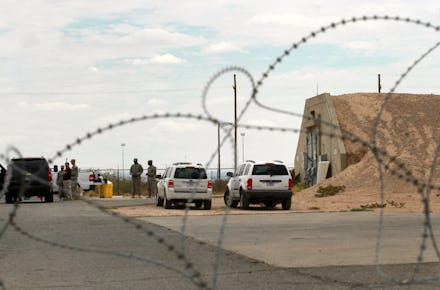Trump administration reportedly eyeing tent cities to house migrant children

The Trump administration is running out of space to house the thousands of unaccompanied minor children currently being held in immigration detention centers around the U.S. Now, according to a new report from McClatchy, tent cities are being considered as one potential solution to the problem.
According to the report, officials are seeking to accommodate the massive influx of minor children being separated from their parents by providing “a mix of ‘standard’ beds that are available year-round, and ‘temporary’ beds that can be made available to address any increases in migration flows.”
In the coming weeks, the Department of Health and Human Services plans to scout the Fort Bliss Army base near El Paso, Texas, as a potential location to temporarily house between 1,000 and 5,000 children, officials familiar with the plans told the news service. The Dyess Air Force Base in Abilene and Goodfellow AFB in San Angelo are reportedly also being considered as shelter locations.
The Department of Health and Human Services currently oversees a sprawling network of roughly 100 shelters in 14 states that have seen a surge in unaccompanied minors proportionate to the White House’s new tough-on-immigration policies, which Trump once made a central tenet of his campaign for the presidency. As of May, there were more than 10,000 unaccompanied immigrant children in U.S. detention centers.
Beginning in 2014, in response to violence in countries like El Salvador, Guatemala and Honduras, the number of migrant children housed in U.S. government-run facilities surged. Now, despite the Trump administration’s plans to expand the shelter system to accommodate more children, the American Civil Liberties Union is challenging the White House’s policy of separating migrant families at the border in a lawsuit.
On June 6, a federal judge ruled that the ACLU’s lawsuit could proceed, despite an attempt by the federal government to argue that the lawsuit should be scrapped on constitutional grounds.
“Such conduct, if true, as it is assumed to be on the present motion, is brutal, offensive and fails to comport with traditional notions of fair play and decency,” U.S. District Judge Dana M. Sabraw wrote in his ruling. “The facts alleged are sufficient to show the government conduct at issue ‘shocks the conscience’ and violates Plaintiffs’ constitutional right to family integrity.”